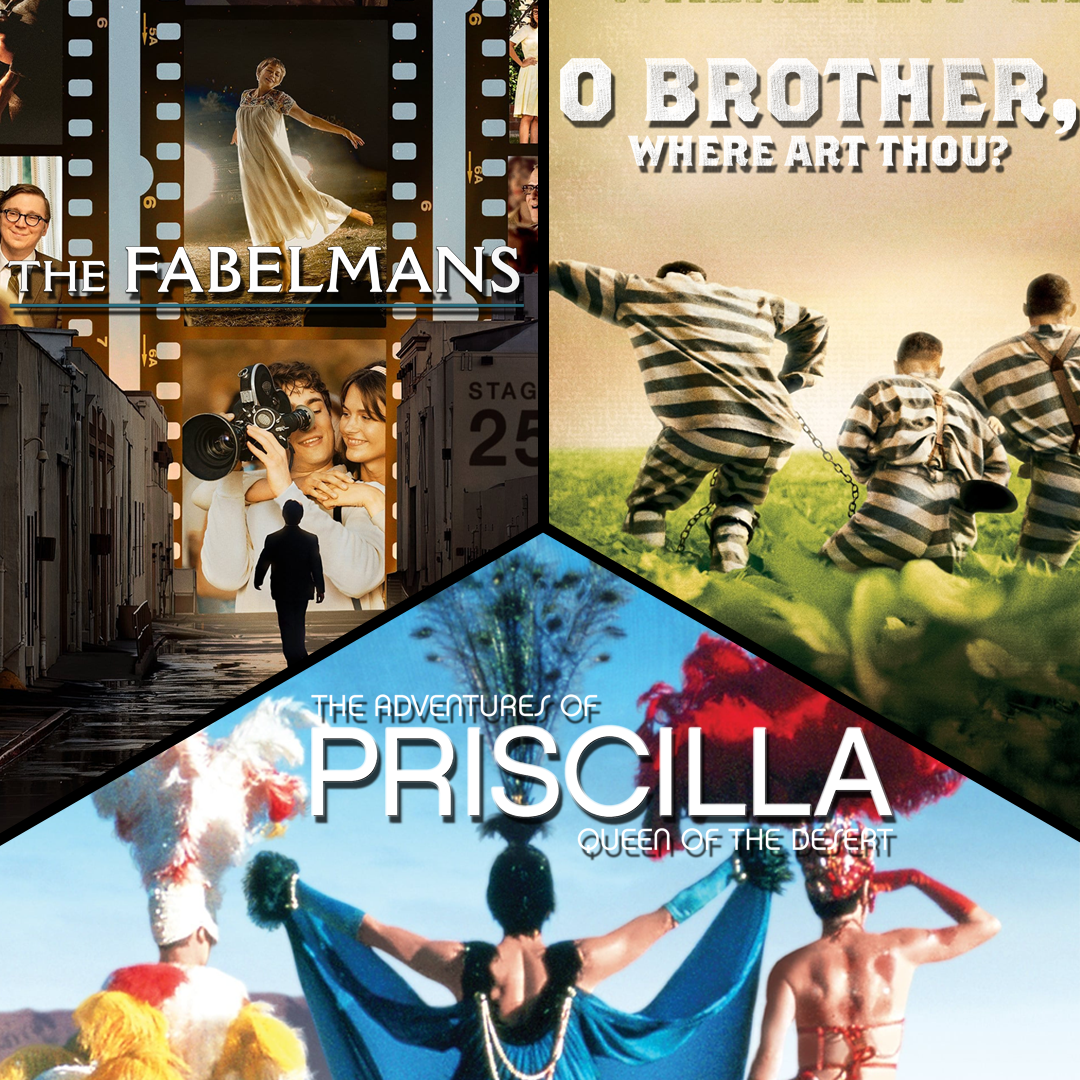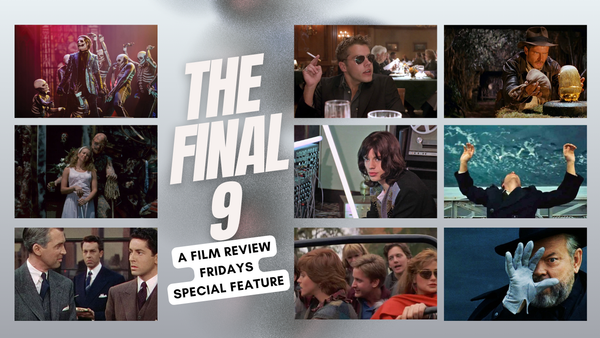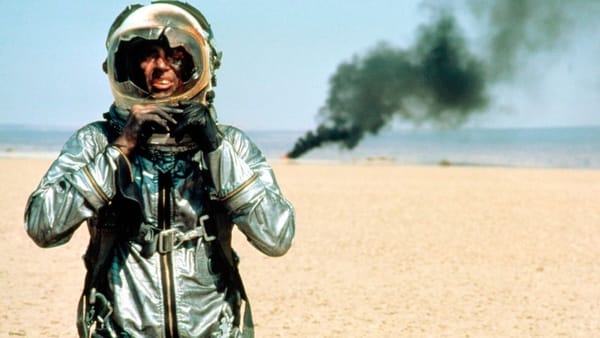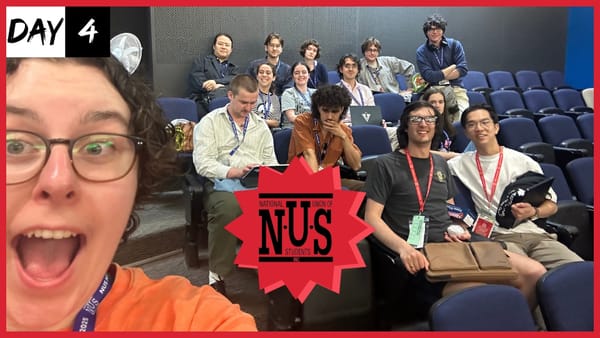Films That Make Us Happy Triple Feature - Film Review Friday

'O Brother Where Art Thou?' - Review by Daniel Fagan
“Pete, it's a fool that looks for logic in the chambers of the human heart.”
It doesn’t take long to realise there’s nothing quite like the Coen Brother’s O Brother Where Art Thou?. The film is a light-hearted Homeric quest through a richly imagined depression-era Mississippi that embraces the idiosyncrasies of Joel and Ethan’s previous work and pushes it to the limits. Here, the duo merge elements of classical Greek storytelling and magical realism in a pseudo-historical, semi-musical masterpiece that defies typical genre classification. It is a movie with a big heart that is totally unashamed to be fun.
Based on Homer’s Odyssey (albeit loosely - the Coens admit to never having actually read the epic) O Brother Where Art Thou? is a fascinating examination of the power of storytelling and the capacity for the human spirit to endure. George Clooney, Tim Blake Nelson, and John Turturro play Everett, Delmar, and Pete, who escape from a chain gang, and, under Everett’s leadership, go in search of a treasure he buried before his arrest. It is a film impossible to hate. It’s full of memorable one-off characters in that typical Coen style, an endlessly watchable leading trio, and an ending so earnestly warm and feel-good you can’t help but smile as the film fades to black.
Ulysses Everett McGill is as excellent a protagonist as one could hope for, and Clooney absolutely shines in the role. His reactions to the insane goings on around him alone make the film an excellent watch, but his failure to grasp that he is part of that insanity elevate the film to comic heights only reachable by the few that are truly great. While Clooney is no stranger to comedy, Everett is undoubtedly the wackiest character he’s portrayed. Everett’s comrades, Delmar and Pete are not the sharpest tools in the shed and they contrast excellently with Everett’s silver-tongued philosophising.
Tim Blake Nelson gives Delmar a sincerity all other characters in the film lack. He is an inherently kind and inquisitive person, to a fault, and his kindness more than once manifests as naivety that gets the trio into trouble. Their encounter with the cyclops (John Goodman with an eyepatch) is one of the many highlights of the film – no matter how many times I see George Clooney get whacked in the face with a branch I can’t help but laugh. Although these characters are comical, they are undeniably well-rounded and thoroughly developed. The Coens are absolute masters of characterisation, and O Brother features some of their very best.
The film is composed of a series of seemingly disparate vignettes. Many are lifted right from the Odyssey, including the fight with the cyclops, and the encounter with a group of enchanting sirens. However, there are many moments created solely for O Brother that reach into the underbelly of the deep south and expose its darkness, including a bank robbery with a fictionalised stand-in for famed thief Baby-Face Nelson, a mass baptism that Delmar and Pete gleefully dive into, and a Klan rally the lead trio burn to the ground.
These vignettes are filled with excellent, snappy dialogue and bizarre yet charming characters. Stand-outs are John Goodman as Cyclops Big Dan Teague, Charles Durning as Pappy O’Daniel, and Chris Thomas King as Tommy Johnson – the film’s stand-in for Blues legend Robert Johnson who, legend says, sold his soul to the Devil for mastery of the guitar.
Somewhere between their quest for gold, the fight for their lives against a cyclops, and evasion of a sunglasses-wearing embodiment of death or Satan (not dissimilar to the sunglassed guard of Stuart Rosenberg’s Cool Hand Luke) Everett, Delmar, Pete, and their new acquaintance Tommy get a record deal, and their band, The Soggy Bottom Boys, become an overnight sensation. Likewise, the blues-based soundtrack for O Brother was a smash hit, hitting number 1 on the Billboard album charts in 2002, and winning Album of the Year at the Grammys. The success is richly deserved. It’s an excellent album, and the highlight, like in the film, is ‘I Am a Man of Constant Sorrow’, a song that will have even the most hardened hater of folk/blues tapping their foot.
Along with its extraordinary soundtrack, O Brother is likely best remembered for its unique colour grade. The not-quite desaturated look of the film perfectly captures the inescapable humidity of the deep south. This was achieved with a revolutionary digital colourisation technique that is common today, but was pioneered on O Brother by the legendary Roger Deakins on O Brother.
No film has the story structure, cinematography, absolutely outlandish yet grounded characters, soundtrack, or direction quite like O Brother Where Art Thou? It is a wholly unique filmic experience that is guaranteed to brighten anyone’s day and have them humming the tunes of The Soggy Bottom Boys for a’ week.
'The Adventures Of Priscilla, Queen Of The Desert' - Review By Emma Cranby
This review has been a very, very long time coming. I’ve already mentioned my love for this film in at least one other review, and the friends I’ve forced to sit through spontaneous afternoon rewatches with me are probably just begging me to write about it so I can finally get it out of my system and stop bothering them with overly-enthusiastic renditions of ‘I’ve Never Been To Me’.
That will, of course, never happen – one review is not going to be what it takes to get me to shut up about The Adventures of Priscilla, Queen of the Desert. If there’s such a thing as the human soul, at least 20% of mine is exclusively devoted to loving Priscilla. I’ve seen it more than any other film – although I don’t know the exact number, it wouldn’t be a stretch to imagine it’s somewhere over twenty. For at least a month when I was a teenager, I watched it every week like clockwork. And although the overwhelming pace of my life currently means I haven’t watched it in something like six months, I could still quote just about every single line.
Why do I love it so much? I find it hard to say for sure, but I am inclined to mention a few key elements: the music, the fashion, the script, the setting, the story, the – actually, it would be easier to list things I don’t love about Priscilla. That list is non-existent. But I don’t know if I’ve ever encountered a film that’s just so, so easy to love.
Priscilla tells the story of two drag queens and a trans woman – Adam/Felicia, Tick/Mitzi and Bernadette – who take it upon themselves to drive a bus from Sydney to Alice Springs, where they’re to play a show for the hotel run by Tick’s ex-wife. Armed with champagne, snide jokes, too many ABBA cassette tapes and some of the most glorious clothes you’ve ever laid eyes on, they travel across the outback, making all manner of friends, enemies, and questionable decisions in one country town after another.
The film is a vibrant, joyful meditation on family, identity, love, tolerance, belonging, friendship, and well, pretty much anything you could want a film to explore. It’s never sentimental, but it’s profound in ways you might not even be able to appreciate fully from the first watch (this is, of course, because you’ll be laughing too hard to think of anything but how much your cheeks hurt from smiling). It’s raw, as well; some parts are genuinely hard to watch for the frankness with which they depict the hostility that the main characters face. But in not shying away from this side of the things, the film can only be stronger; being able to balance this with some of the absolute funniest moments I’ve ever seen on screen is testament to the fact that Priscilla is unequivocally a masterpiece of cinema.
To elevate it even further, the cast are outstanding. My favourite has always been Guy Pearce as Adam (or, in drag, the wonderfully named Felicia Jollygoodfellow), whose larrikin approach to camp, blunt honesty, and next-level fashion sense give him cause, at least in my books, to be remembered as one of the best things to ever happen to Australian cinema. Meanwhile, as Tick (drag name: Mitzi Del Bra), Hugo Weaving is sensitive but hard-edged, and offers the film a genuinely meaningful and moving slant that elevates it far above just being another comedy movie. Much of the rest of the cast is equally well-known, with the late, great Terence Stamp (rest in peace) doing an extraordinary job as Bernadette, while one of Australian cinema’s foremost character actors, Bill Hunter, is loveable and engaging in his portrayal of the mechanic they meet in just one of the many small towns they visit.
With every single element extraordinary, then, it’s no surprise that The Adventures of Priscilla, Queen of the Desert is a truly perfect piece of cinema that I can’t ever express my enthusiasm for highly enough. Its soundtrack features everyone from the Village People to Gloria Gaynor, and is entirely the reason why one of my favorite songs around has to be ABBA’s Mamma Mia. If the music isn't enough for you, the film also won a well-deserved Oscar for Best Costume Design at the 1995 Academy Awards. And if my words still haven't convinced you that this is one of the brightest, funniest, sharpest, most joyful, most moving films you’ll ever seen, then you just need to watch it. If you bring the lunch and tea, I’ll bring the ecstasy – and I promise, your life will never be the same again.
'The Fabelmans' - Review By Mason Horsley
One of my favourite genres in all of film has to be movies about making movies. It can be so satisfying to watch characters with the same passions you have. ‘My Week With Marilyn', ‘The Disaster Artist', ‘Clerks 3’; it's a genre that never fails. The genre dates back to at least 1923, with the film ‘Souls For Sale’, directed by Rupert Hughes and starring Eleanor Boardman as a woman who ditches her new criminal husband and pursues an acting career. Almost a century later, drawing from his own personal history, Steven Spielberg would contribute one of the most touching and tear-jerking films of the genre, ‘The Fabelmans’.
‘The Fabelmans' was a film I almost didn't watch in 2022. At the time, Spielberg was, to me, another studio director with nothing but adaptations coming out. But one day, a video on my For You Page showed me a compilation of Paul Dano pulling up his pants in the film, set to ‘Mary On A Cross' by Ghost. I went to see the film the next day. I hate how stereotypical it makes me feel going to see a film because of a TikTok, but the brief glimpses of cinematography and interactions in those 15 seconds convinced me.
When Sammy Fabelman is taken to see ‘The Greatest Show On Earth’ for his first ever cinema visit, he finds a new passion in film. With the help of his mother, he begins making his own films with his friends and spends his spare time going to see the newest showings. As he grows older, the films he makes build him up and break him down as they earn him admiration, but also reveal behind the scenes secrets that no child would want to see. Throughout the 2 and a half hour runtime, we’re given vignettes of his life at home, on set and at school where he faces anti-Semitic abuse, until he finally makes it to Hollywood and earns the chance to professionally direct.
Gabriel LaBelle plays Sammy and perfectly captures every moment of heartbreak, outburst and passion. It's hard to pick a best moment for him. It might be how he softly directs his actor in a war film, tenderly placing him among his bloodied, dead comrades. It might be when he's confronted by his anti-Semitic bully and verbally tirades him. Or it might be when he wants to stop making films, because his most recent one just unearthed a devastating secret. In any case, no notes.
Similarly, Michelle Williams is amazing in every film she stars in, and ‘The Fabelmans' is no exception. She finds just the right balance in portraying a wife on the verge of a breakdown. Her best scene has to be in the closet, after an argument with Sammy. Sammy leads her into his hideaway and turns on the projector with that damn reel. In only a couple of minutes, you see her slowly watch the world crumbling around her, all in almost complete silence.
Seth Rogen deserves all the praise he gets for dramatic acting. He's only in the first third of the film, but his screentime is incredibly impactful. In ‘Steve Jobs’, we saw Rogen shout and yell for recognition, but here we see him try to make amends and set things right after a family camping trip. The shortening of each breath, the lowering of the voice as he tries not to cry; it's a brilliant performance from a man who once made me laugh with “you know how I know you're gay?” jokes.
Why does this film make me happy? Maybe because I see a reflection of myself in Sammy. Every family gathering, my grandmother always reminds us of the short films I used to direct my cousins in. One was an espionage film with a main character by the name of Johnny Fowl. Being a child director, I used almost every good-looking effect I could get my hands on, which included the sponsored ‘Star Trek: Into Darkness’ ones. I killed off the villain with phasers and Johnny Fowl walked off into the sunset as the Enterprise warp-jumped to another galaxy. The iPad I used for it smashed, but we held onto it, so maybe it's recoverable. I'm not holding my breath, though. I'm certainly not the biggest fan of 13-year-old Mason's filmography.
‘The Fabelmans' is a movie that perfectly captures the beauty of film on film. It's not just an autobiopic, but the biopic of everyone who has ever wanted to be a director. The hours spent in cinemas, the worries that you'll never make it, those first films made with your friends and family, that very first film you ever watched at the cinema (I can't tell for sure, but I think mine was ‘Monsters Vs Aliens’). This is a film that almost brought me to tears 3 or 4 times. If you love film with all your heart too, I cannot recommend The Fabelmans enough.




